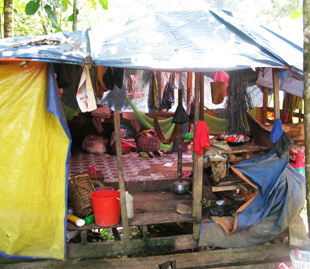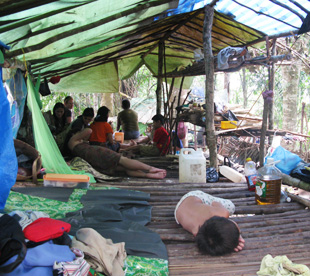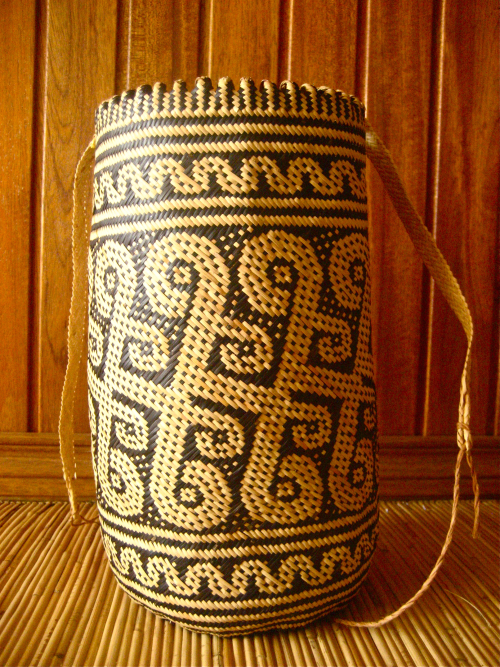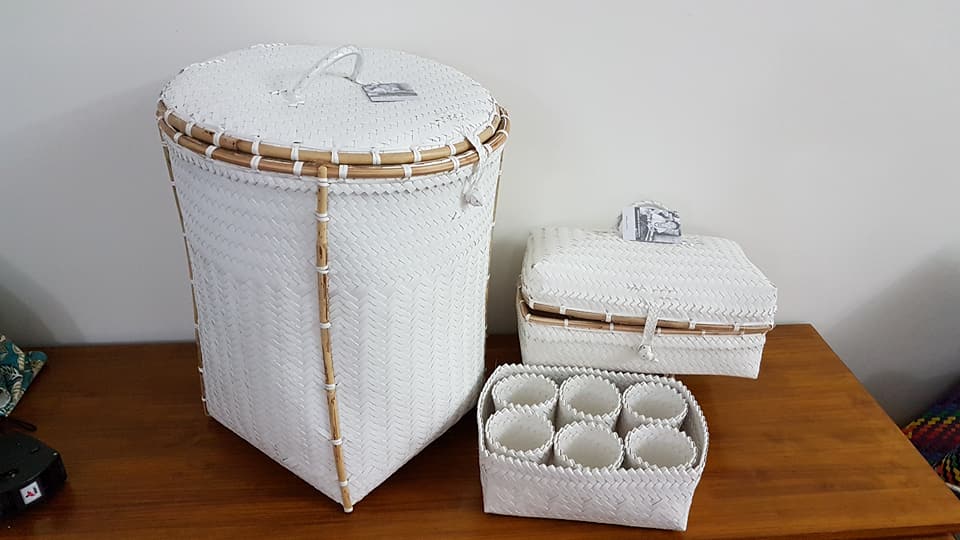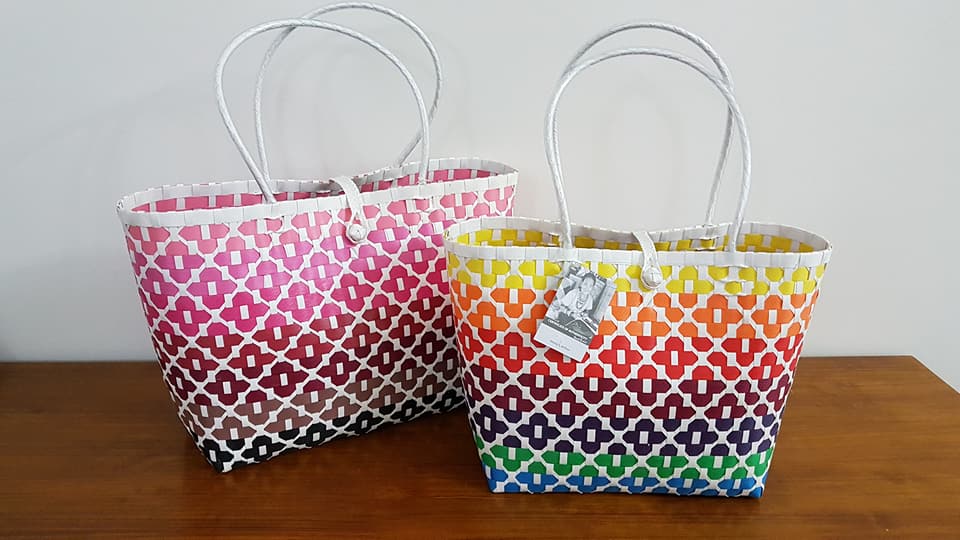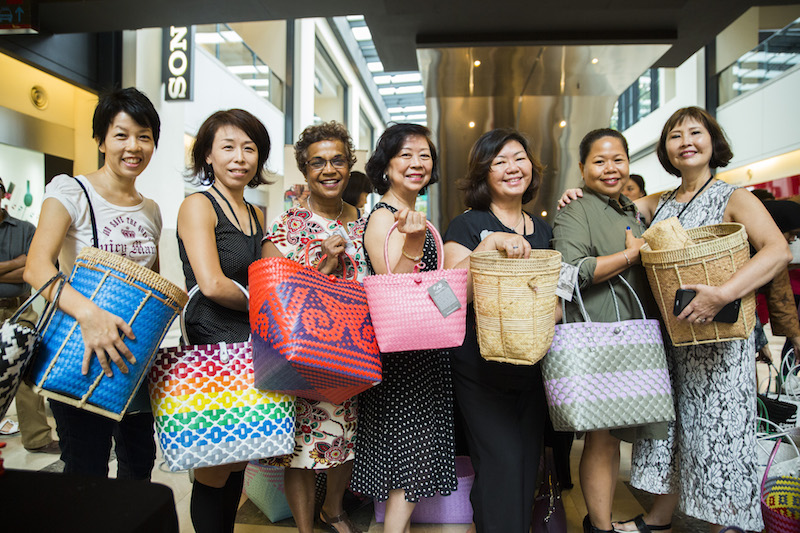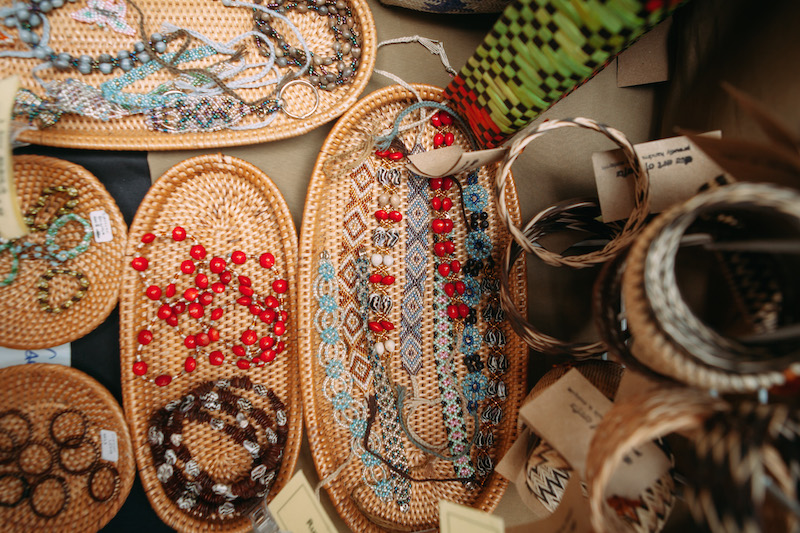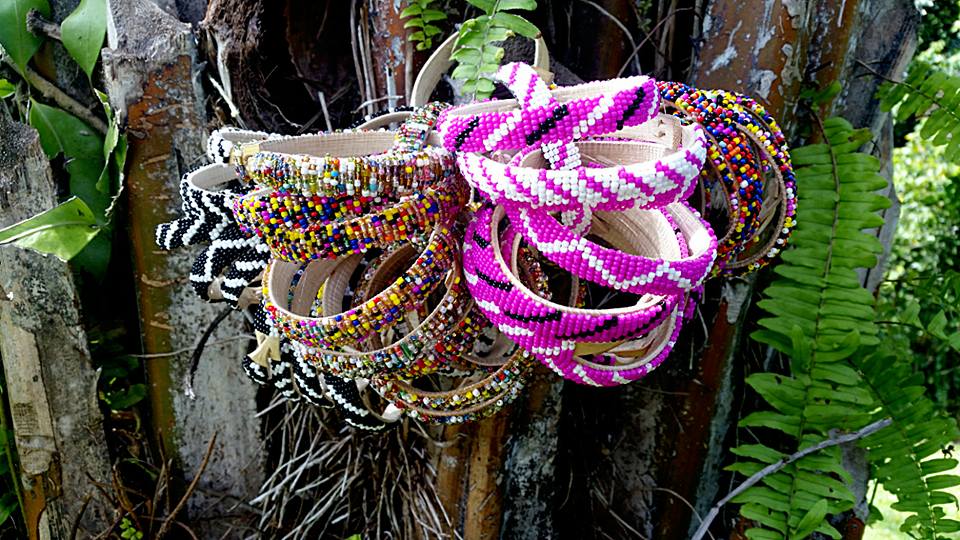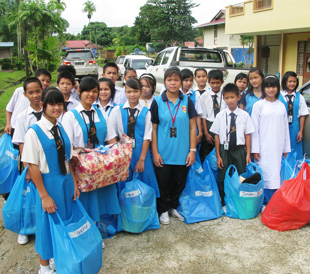From Sarawak's Rainforest To The Netherlands: Penan Women's Handmade Bags Are Going Places
Helping Hands Penan is empowering the community to gain financial independence by marketing the Penan women's weaving skills.
Eviction, death threats, and rape. News of illegal logging and sexual assault have become synonymous with the Penan people.
As one of the last remaining hunter-gatherer tribes in Southeast Asia, the Penan community can traditionally be found living in the deep interiors of the Sarawak rainforest. Today, there are around 11,000 Penans and most live in settled communities, while only around 300 of them still lead the nomadic lifestyle.
Known for their gentle manner and equality between the sexes, the Penan people, for most parts, rely on the forest which acts as their home and source of food.
Being simple people with a deep respect for nature and not believing in taking more than they need, the Penans put little emphasis on material ownership. Destroying the forests to make way for development has greatly affected these people.
Realising the fact that they're indeed losing their homes and lands, and in their efforts to keep up with the changing times, a large number of Penan people are starting to relocate closer to town areas, in order for their children to receive education, that has the potential to alleviate their troubles in the future.
Unfortunately, things have been difficult for the Penans, with most schools located hours away from their settlements. An article on the plight of the Penan people on Bruneions highlighted that some have even resorted to living in squatter areas - in makeshift houses made out of tree stems and plastic sheets.
On top of that, they hardly have the basic necessities needed to survive in an urban setting, given the fact that their core values have always been focused on sharing instead of amassing personal wealth.
They do, however, have one particularly marketable skill - weaving. The Penan women have been making beautiful rattan baskets and bags called keva for centuries now.
Being part of a nomadic tribe, the Penans would move from one place to another, and using these hardy bags became the most convenient way to carry their belongings. The men would typically bring it along when they go hunting and the women would use it when they collect sago, fern, and tapioca.
Other than making bags, the women also weave colourful, intricately designed rattan mats and bracelets. According to Picnic With The Penan, a blog that's dedicated to all things Penan, the rattan bags and mats are usually made from wild jungle rattan that are stripped, smoothed, and treated with the sap of a plant and buried overnight in the mud for colouring.
Only then are they transformed into uniquely beautiful designs to make the bags and mats, using ancient weaving techniques that have been passed down from generation to generation.
These items are not only a representation of their rich culture and past, but they're also practical objects that can still be used in our daily lives.
In comes Helping Hands Penan (HHP), a Brunei-based NGO whose aim is to help and empower the Penan women in Sarawak. They help the women sell their crafts to raise funds that are later used for the education of the Penan kids.
Founded by a group of expat wives about eight years ago, the initiative picked up in the past couple of years, gathering a network of volunteers across East and West Malaysia in places like Miri, Kuching, Kota Kinabalu, Kuala Lumpur, Penang, and Johor Bahru.
The organisation was officially registered as an NGO in Malaysia on 12 February 2016. A few months later, they started a committee for the "Sponsor A Child Education Programme". If you're interested to sponsor a child or learn more about this programme, get in touch with one of the members of the committee via their official Facebook page, HelpingHands Penan Sponsor A Child.
"Our mission is to empower the Penan women to help themselves and their family. We are here to support the Penan in their new ways to settle, but primarily to support the Penan kids to get education by creating an environment that encourages them to start and continue their education."
HHP's main focus right now is to educate the Penan children from pre-school level all the way to ensuring that they go through tertiary education. "We aim that one day, every Penan child can go to school."
To better market the products, HHP added a modern twist to the plain rattan items by introducing durable, vibrantly-coloured plastic as an alternative raw material
Explaining the move, Penan Bags, the online store that sells the crafts supplied by HHP, said that it was due to high costs and difficulty in obtaining the raw materials. As a solution to that, HHP started supplying the Penan women with PVC fiber to make the bags and mats.
Penan Bags assures that customers are very satisfied with the quality of the bags.
"Customers have related their stories of how well the bags last and how durable they have been despite regular and heavy usage! Since they are plastic, they can be easily washed, and don't rot. The colours also stay vibrant for a very long time!"
As of now, the online store only delivers the bags to West Malaysia as they're trying to focus on the domestic market. It was stressed that more than two third of the price customers pay for the items goes to the Penan community, while the remaining goes to the logistics and delivery of the items.
Guess what's the coolest part about this? Most of the bags and baskets are almost completely unique and different from the other. So, if you're a fan of owning one-of-a-kind bags, this would be perfect!
Former volunteers with Helping Hands Penan have helped to boost the sales of the gorgeous Penan bags in the Netherlands.
Image via Nikkei Asian ReviewThe bags and baskets have gone through a few design improvements over the years and they're are a major hit now, even in the Netherlands! Nikkei Asian Review spoke to a French teacher, Isabelle Stevens, who moved there recently. She used to be a volunteer with HHP.
"Here in Holland, they are crazy about the white bags and the mono-coloured ones," she said, adding that the response for the bags have been so good to the point that she is trying to register a business there to start importing the bags.
In just the past year, an estimated number amounting to more than 10,000 bags weaved by Penan women have been sold
Women showing off their Penan bags at a pop-up bazaar in Kuala Lumpur.
Image via Teoh Eng Hooi/Wong Yok TengIt was reported that the number of weavers have also increased, with around 200 women across various villages in Sarawak.
The price for the bags usually range from RM30 to RM120, depending on the size and design.
Not only are the Penan women becoming more confident and financially independent, but this project has also propelled some of them to start small businesses to market their own products."They need to feel proud of themselves and do something to break the cycle of poverty," said Shida Mojet, one of the HHP members, when commenting on the initiative.
Other than using the profits from the handmade bags, HHP also raises funds via several initiatives to help the Penan community, including:
• Sales of non-Penan crafts like ethnic earrings.
• Sales of greeting cards with photos donated from professional photographers.
• Collection of donation in the form of food and second-hand items.
HHP also has another ongoing initiative which is, 'Project Light'. "We aim to light up as many Penan settlements as possible. Each set of solar light is RM400, which could light up a whole house."
Some of the Penan students with their school supplies bought from the sales of Penan handicrafts.
Image via Violette Tan/BruneionsViolette Tan, HHP's coordinator, said recently that as of July 2017, they've already bought solar lights for six villages and are providing monthly financial assistance to 60 students from kindergarten to tertiary level
If you're interested to purchase these authentic Penan crafts or be part of the initiatives by Helping Hands Penan, here's how you can get in touch with them:
Send a message via their official Facebook page, Helping Hands Penan, or drop them an email at [email protected].
Alternatively, you can drop them a call at +673 874 7168.


